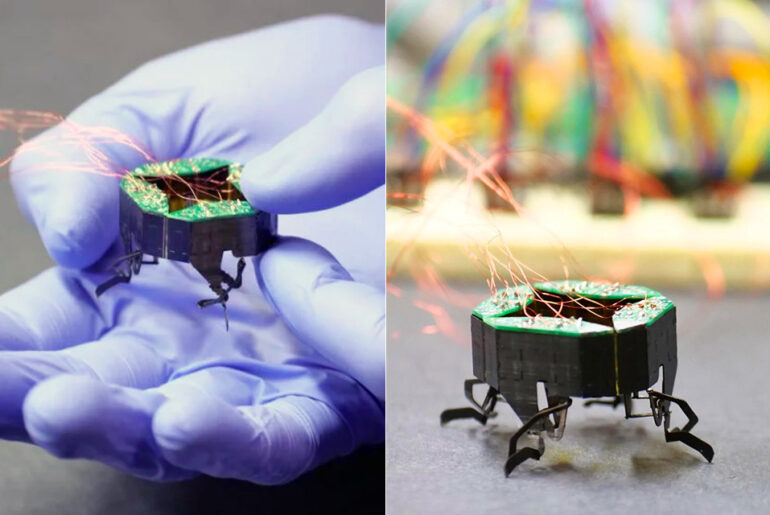
Photo credit: Casey Cass/CU Boulder
A robotic sea turtle can be used to study aquatic life, while CU Boulder’s CLARI (Compliant Legged Articulated Robotic Insect) can squeeze into tight spaces. This squishable, shape-shifting robot is capable of passively changing its shape to squeeze through narrow gaps and weighs less than a standard ping pong ball.
CLARI comes equipped with four legs, but its design allows engineers to mix and match its appendages to create various other robots. This modular prototype is currently tethered to wires, which supply it with power and transmit commands, but future iterations should be wireless, thus enabling it to crawl into spaces where no other machines have gone before, such as the inside of a jet engine, all the while autonomously avoiding obstacles.
- LEGO SET FOR ADULTS – The WALL-E and EVE (43279) building set offers adults 18 years old and up an immersive construction challenge featuring...
- 4 DISNEY PIXAR CHARACTERS – Builders can create iconic robots WALL-E, EVE, M-O and Hal from the hit movie—each with authentic functionality like...
- MINDFUL BUILDING EXPERIENCE – This detailed construction set lets builders practice advanced construction techniques for an immersive and relaxing...

What we want are general-purpose robots that can change shape and adapt to whatever the environmental conditions are. In the animal world, that might be something like an amoeba, which has no well-defined shape but can change depending on whether it needs to move fast or engulf some food,” said Kaushik Jayaram, co-author of the study and an assistant professor of mechanical engineering at CU Boulder.








